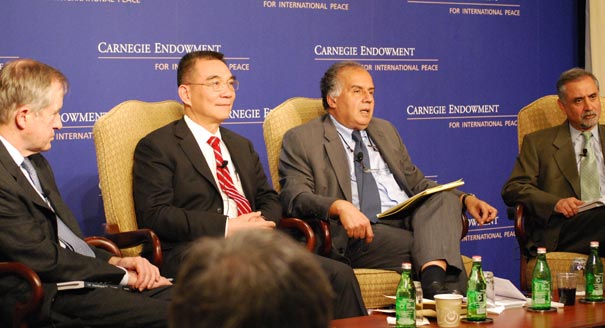Registration
You will receive an email confirming your registration.
Since opening up to the world in 1979, China’s economy has grown by an astonishing 10 percent, on average, in real terms every year. In a matter of years—or at most two decades—it will likely surpass the U.S. economy in size. But many observers have pointed out that China’s recent “rise” is more aptly deemed a “return” to the preeminence it enjoyed before the eighteenth century. How did China decline from one of the most technologically advanced countries before the Industrial Revolution to one of the poorest in the following two-and-a-half centuries? To what extent has China become a market-based economy, and what lies ahead?
Discussing his recently published book, Demystifying the Chinese Economy, World Bank Chief Economist Justin Lin offered insight into these questions and the lessons that China’s experience holds for other countries in economic transition. Carnegie’s Vikram Nehru and Nicholas Lardy of the Peterson Institute for International Economics offered their perspectives. Carnegie’s Uri Dadush moderated.
